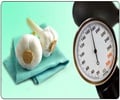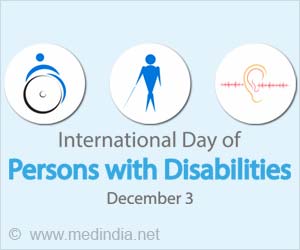Beating high blood pressure with whole fruits: Eating whole fruits and skipping the added sugar-containing foods can prevent blood sugar spikes and help lower your blood pressure (BP) levels.
- Eating whole fruits can keep high blood pressure (hypertension) at bay
- Skipping added sugar-containing foods and eating whole fruits can lower blood pressure levels naturally
Read More..
Unless you have been covering your ears and eyes for decades, you already know that added sugar is a prime suspect in health problems such as diabetes and obesity.
It is a growing subject of interest in heart disease, too. And new preliminary data from a study by UD’s Sheau Ching Chai, assistant professor of behavioral health and nutrition, and collaborators show a strong link between added sugar and hypertension — high blood pressure — in post-menopausal females.
The new research, published in a recent issue of the journal Nutrients, shows that added dietary sugar is linked to blood pressure levels even after controlling for age, income, body mass index, physical activity levels, daily caloric intake and use of blood pressure medication. In other words, the connection is strong.
Now, the good news. The same study shows that eating whole fruit is linked with a reduction in blood pressure for both men and women.
As noted, the data are preliminary, drawn from a small sample size — 128 participants, mostly Caucasian, ranging from 65 to 80 years old — and the results do not show cause and effect, only a strong link and proof of concept.
Chai and collaborators in UD’s College of Health Sciences showed a strong link between added sugar and an increase in systolic and diastolic pressures — the pressure as the heart beats and the pressure between beats, respectively, in the older women. By contrast, whole fruit was linked to reductions in pressure between heart beats (diastolic) only.pressure levels in older women.
The study was conducted between 2015-2017 and included 128 people (57 males, 71 females) between 65 and 80 years old, with no history of cancer, gastrointestinal disease, traumatic brain injury, stroke, diabetes, central nervous system disorders, Alzheimer’s, dementia or psychiatric illness.
This study examined the influence of food groups and added sugar in the diet on blood pressure levels. It did not look at the effect of sugar substitutes. The major types of added sugar consumed in this population are sucrose (table sugar), glucose (found in candy, sports drinks and desserts) and fructose (a fruit sugar and major source of added sugar in the form of high-fructose corn syrup). There is a big difference in the way each is metabolized in our bodies, Chai said, and fructose, in particular, may contribute more to raising blood pressure than other types.
Sugar is abundant in the American diet, with many people eating far more sugar than is recommended by the American Heart Association, Chai said. The AHA sets the cap at no more than 6 teaspoons per day for women, no more than 9 teaspoons for men. A much lower cap — 9 teaspoons per week — is set in the DASH (Dietary Approaches to Stop Hypertension) eating plan, developed with funding from the National Institutes of Health.
By contrast, Chai said, the average American eats about 17 teaspoons per day — about 66 pounds per year.
Time to shake that sugar habit, sweetie.
“In beverages, especially, you don’t see it,” Chai said. “You just drink it. But, one 12-ounce can of soda has almost 10 teaspoons of sugar.”
Added sugar will be easier to see in 2020, when that ingredient joins the list of required elements on nutrition labels, giving consumers a better idea of what an item includes.
“We’re not saying you can’t eat sugar,” she said. “The kind found naturally in whole fruit is fine.”
Whole fruit brings many valuable elements to a healthy diet, she said, including pulp fiber, antioxidants, vitamins, minerals and other bioactive compounds. Previous clinical trials have shown that grapes, tart cherries and blueberries all can reduce blood pressure, too.
A larger feeding study and clinical data are needed to confirm the results of this research, Chai said.
Dietary salt already is known to affect blood pressure levels, with much of the research in that area established by UD’s William Farquhar, professor of kinesiology and applied physiology. Chai and Farquhar also want to understand the combined effects of added sugar (especially fructose) and salt on blood pressure and cardiovascular health because the typical American diet is high in both.
Please Note: This is not a substitute for your regular blood pressure treatment. However, this is just an add-on method to lower your blood pressure levels.
Source-Newswise















